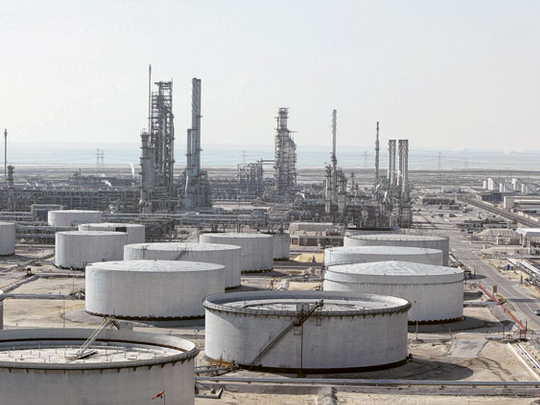
As good as they are, I hope WikiLeaks cables will not become our reference for everything that goes around the world — including the evolution of the oil market.
The headline in the Guardian February 8, 2011 says: "WikiLeaks cables: Saudi Arabia cannot pump enough oil to keep a lid on prices," as if Saudi Arabia's only mandate is to keep a lid on prices for the industrial west to enjoy everlasting growth at the expense of depleting developing countries resources.
The article by John Vidal, the environment editor, goes on to say that "the US fears that Saudi Arabia, the world's largest crude oil exporter, may not have enough reserves to prevent oil prices escalating," thereby creating the impression that the country is running out of oil.
The article is supposedly based on leaked "confidential cables" from the American embassy in Riyadh that urged "Washington to take seriously a warning from a senior Saudi government oil executive that the kingdom's crude oil reserves may have been overstated by as much as 300bn barrels — nearly 40 per cent".
The official in question is Sadad Al Hussaini, the former head of exploration at Saudi Aramco who in 2007 allegedly told a "US diplomat that Aramco's 12.5m barrel-a-day capacity needed to keep a lid on prices could not be reached".
US diplomat
The article gives the impression that the gentleman in question has sought the US diplomat to tell him the secrets of the trade — while going back to the original cables the impression is the opposite. While this is possible in Saudi Arabia, I believe professional people should be aware of the risk of misinterpretation, especially with diplomats.
On the technical side I find Sadad Al Hussaini's arguments very similar, but more prudent to many oil analysts. While he is not a pessimist he does point out clearly that the risks in the oil market are plenty and it is not enough to rely on Saudi Arabia to produce the quantities desired by the market.
The lead times to complete projects are long, costs are going up and engineering and manpower resources are becoming scarce.
The argument that "Saudi reserves are not as bountiful as sometimes described, and the timeline for their production not as unrestrained as Aramco and energy optimists would like to portray" is a statement of prudence in reply to numbers presented by other officials where proven reserves are lumped with probable and possible reserves and even reserves yet to be discovered in order to give a more optimistic rather than realistic picture.
The problem of reserves accounting is well known and reserves declarations are sometimes influenced by political reasons or to attract investment or even to seek higher quota in OPEC's production ceiling. The sudden reserves increase by almost all OPEC members in 1986 is a case in point. OPEC-proven oil reserves increased from 530 billion barrels in 1985 to 637 in 1986 and to 755 in 1988. OPEC credibility may have been affected as a result but the numbers still stand in almost every reference about the subject.
Bitumen
Recently, Venezuela revised its conventional oil reserves upward from 80 billion barrels in 2005 to 211 in 2009 on account that its unconventional heavy bitumen deposits have become economical to produce due to the appreciation of oil prices.
Iraq recently announced a revision of its reserves from 115 to 143 billion barrels and Iran announced exactly one week after Iraq that its reserves are raised from 138 to 150 billion barrels. As long as there is no accepted procedure for reserve accounting, and an independent body to oversee such procedure, the world will continue to rely reluctantly on countries' announcements.
In the light of the uncertainties in the oil market, Saudi Arabia announced a target production capacity of 12.5 million barrels a day and probably achieved it already. The Saudi government rightly decided to freeze the target for the coming years as there is no point in increasing capacity when the demand outlook is modest. Al Hussaini believes that problems will start if production increased to 15 million barrels a day. Prudence in the oil industry is important because the risks are great. It is better for professional people to voice their opinions in public, as Al Hussaini often did, to avoid misinterpretation or quoting out of context.
The writer is former head of Energy Studies Department at Opec Secretariat in Vienna.












